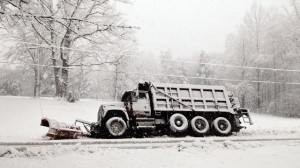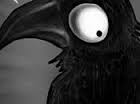History has showed that Boricuas move to the Unites States and many other countries looking for a better opportunity; better job, better pay, better schools for the children. But is not all that easy. I was surfing the net and I found an email that was sent to me back in 2007 when I was in Washington, DC and I loved it. It’s a diary from a Boricua in Massachusetts. I really laugh out loud when I read it because I can relate to it. Here it is, enjoy.
August 12:
Today I moved to my new house in the state of Massachusetts. What a peaceful place! Everything is pretty here; the mountains are majestic and I can’t wait to see them covered in snow. I’m so glad I left behind all the heat, the humidity, traffic and the hurricanes of Puerto Rico. This IS living!
October 14:

Massachusetts is the prettiest place I have ever seen. The leaves have gone from green to red and now orange. So happy to have all four seasons. I took a walk through the woods and I saw a deer for the first time. Such an agile and elegant animal. This has to be heaven. I hope to see snow soon.
November 11:
Deer hunting season is just around the corner. I can’t imagine anyone that wants to kill one of those amazing creatures. WINTER IS HERE!!! I hope to see snow soon. This is really living!
December 2:
Last night we had our first snowfall. When I woke up everything was covered by a white layer. It looked like a postcard, a movie. I took my shovel to remove the snow from my entrance. But before I did that, I played in the snow and had a snow fight with my neighbors (I won, of course). When the snow plow truck passed by I had to shovel the snow again. But the snow is amazing. It looks like cotton balls thrown all over the place. I love Massachusetts!
December 12:
Last night we had some snow again. The snow plow truck got my entrance dirty again, but what can I do, right? Even with that, I love this place.
December 19:
Another snow fall last night. I was not able to clean the entrance today, because before I was finished shoveling the snow, the truck came again. So, I did not go to work today. I’m tired of shoveling the snow. Damn snow plow truck!
December 22:
Snowed again last night! Or should I call it white shit! My hands are killing me for all the shoveling I’ve been doing. I think the damn snow plow truck driver watches me from the corner and when I’m done shoveling that son of a witch drives by again. I hope you crash that truck, you jackass!!!!!!
December 25:
Merry white Christmas, but really white ‘cause is full of white shiiiit! Damn it!!!!!! If I get a hold of that damn snow plow truck driver I swear I will kill him. I don’t understand why they can’t use more salt in the street so this shit melts faster!
December 27:

Last night we had some more white shit. I’ve been inside my house for three damn days! I only go out to shovel the shit out of my entrance after the snow plow cleans the street. Even the car is under mountain of black snow. In the news they say we will have ten, yes TEN more inches of white shit! I can’t believe this. PUÑETAAAAAAAAAA!
December 28:

The damn news channel was wrong again; we did not have 10 inches of snow, we had 24 more inches of that WHITE SHIIIIIIIIT!!!!!!!!! If we continue like this we will have that white shit even in July. Now the damn snow plow truck broke a couple of blocks from here and the stupid driver had the nerve to ask me for a freaking shovel. I told that son of witch that I had broken 9 shovels trying to clean all the white shit he left in my entrance. Told him that if he wanted a shovel he could go to hell and get one. Then I broke the shovel in his head…. He deserved it! SON OF A WITCH!!!
January 4:
I was finally released from jail today. I was driving to get some food and a stupid deer jumped in front of my car and I killed it. Carajo, I will have to pay around $3000.00 to get my car fixed! This stupid deer should be poisoned. I wish hunters would have kill them all last year. Hunting season should be all year long.
March 15:
I slipped in the damn ice that is all around this damn city and I broke my leg. Last night I dreamed I was planting a palm tree.
May 3:
When my cast was removed I took the car to the mechanic. He told me my car had rust under it because of all the damn salt that was used to melt the white shit. Who came up with that dumb idea? Isn’t there any other way to melt the damn ice?
May 10:

Finally I’m back in Puerto Rico. Now, THIS IS LIVING!!! The heat, the humidity, the crazy traffic, hurricanes, pinchos, the beach, carne frita con mofongo, pitorro y cerveza…. This is the place to be in.
This is basically what happens when Boricuas decide to leave the Island. It may be for a better future for us and our family, but the sacrifice is huge. Feel free to share your experiences with me. In the words of poet Virgilio Dávila: “Mamá, Borinquen me llama. Este país no es el mío. Borinquen es pura flama y aquí me muero de frío (Mom, Borinquen is calling me. This is not my country. Borinquen is pure flame y here the cold is killing me). Until next time, cójanlo suave!









